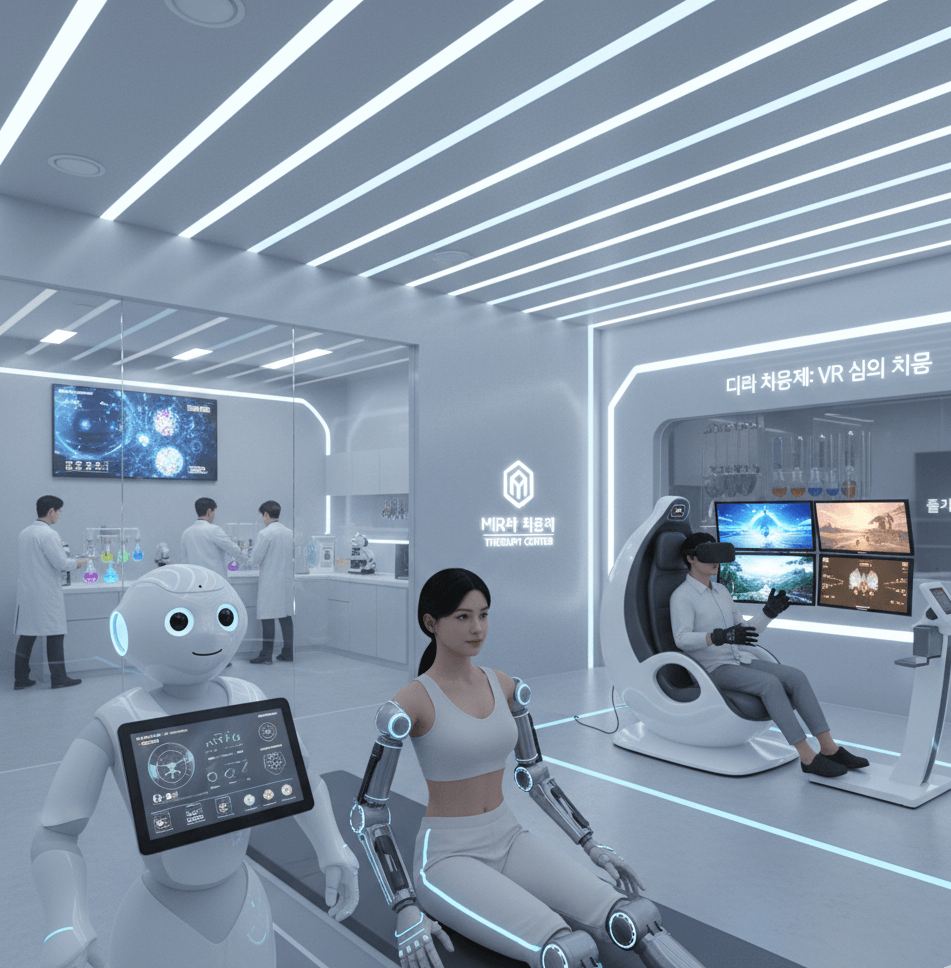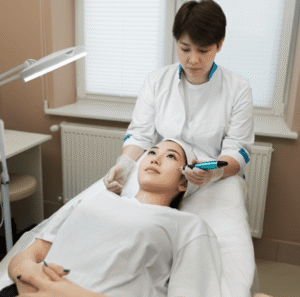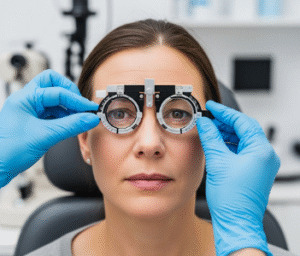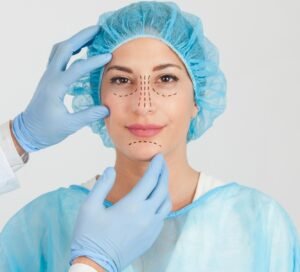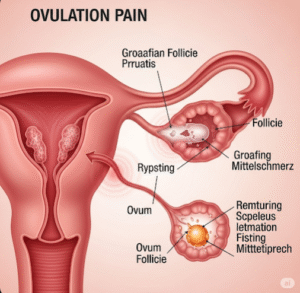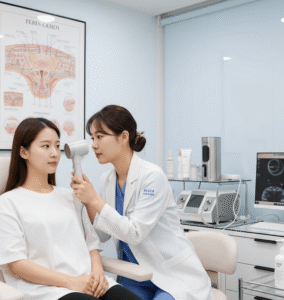South Korea’s healthcare system is evolving rapidly, blending traditional care with new technologies and scientific breakthroughs. In recent years, Korean clinics have introduced a variety of innovative therapy methods—ranging from regenerative medicine to advanced psychological treatments. These approaches are designed not only to treat illness but to enhance recovery, improve quality of life, and personalize care for every patient.
Regenerative and Biological Therapies
➤ Stem Cell and Regenerative Injections
Korea is at the forefront of stem cell research and clinical application. Many clinics now offer autologous stem cell injections, using a patient’s own cells to repair damaged tissue in areas such as joints, tendons, or skin. This method has become especially popular in orthopedics, anti-aging medicine, and dermatology.
Some clinics also use stem cell IV infusions, claiming benefits such as improved vitality, faster healing, and anti-inflammatory effects. In addition, regenerative therapies are often paired with growth factors or exosomes—tiny cell-derived vesicles that help regenerate tissue, reduce inflammation, and enhance skin repair.
While these therapies show promising results, experts stress the importance of safety protocols, clinical oversight, and patient monitoring to ensure proper outcomes.
➤ Exosome and Growth Factor Therapy
Exosome-based treatments are gaining recognition as a cutting-edge approach to skin rejuvenation and recovery. By promoting cellular communication, these biologic therapies encourage tissue healing and collagen formation. Clinics frequently combine them with microneedling or laser therapy for enhanced absorption and effectiveness.
Digital and Remote Therapy Innovations
➤ Telemedicine and Online Counseling
Korea has expanded telemedicine nationwide, allowing hospitals and clinics to offer virtual consultations, therapy sessions, and remote monitoring. This development is particularly impactful in psychiatry and counseling, where accessibility and privacy are essential. Patients can now meet licensed professionals online, maintain continuity of care, and receive follow-up support without traveling.
➤ Digital Mental Health Platforms
Many clinics integrate digital tracking apps into treatment programs, enabling patients to log mood, sleep, and lifestyle habits between visits. The data helps therapists personalize sessions and adjust care plans. This hybrid approach—combining in-person therapy with digital feedback—is especially effective for managing chronic stress, anxiety, or depression.
Psychological and Integrative Therapies
➤ Cognitive Behavioral Therapy (CBT) with Cultural Adaptation
CBT remains one of the most widely used psychological treatments in Korea. However, therapists have adapted it to align with Korean social and cultural values, focusing on issues like academic stress, perfectionism, and family expectations. Bilingual clinics also offer CBT in both Korean and English, making it accessible for expatriates and international patients.
➤ Emotion-Focused and Couple Therapy
A growing number of mental health centers provide Emotionally Focused Therapy (EFT) to help couples rebuild communication and intimacy. This approach teaches emotional awareness and secure bonding, which can be particularly valuable in Korea’s high-stress, work-driven society.
➤ Art and Expressive Therapies
Art, music, and drama therapy are being adopted in psychiatric clinics and rehabilitation centers. These methods allow patients to express feelings nonverbally and reduce anxiety, trauma, or social withdrawal. For children and adolescents, creative therapies are effective in improving self-esteem and emotional regulation.
Technology-Driven Physical and Cognitive Rehabilitation
Korean clinics are also investing in AI-assisted rehabilitation tools and virtual reality (VR) therapy.
- AI-based motion tracking is used in physical therapy to analyze movement and design personalized recovery exercises for stroke or orthopedic patients.
- VR therapy immerses patients in calming or motivating environments to assist with pain management, anxiety reduction, and cognitive training.
These technologies enhance engagement and can make therapy more enjoyable and efficient.
Integration of Traditional and Modern Healing
Korea’s unique advantage lies in its ability to combine modern science with traditional wisdom. Many integrative clinics merge Western medicine with Korean traditional medicine (Hanbang), offering treatments such as acupuncture, herbal therapy, and breathing meditation alongside physiotherapy or psychotherapy. This holistic approach helps patients manage chronic pain, fatigue, and emotional imbalance more naturally.
Challenges and Ethical Considerations
Despite the rapid progress, several challenges remain:
➡️ Ensuring scientific validation and regulatory approval for new biological therapies.
➡️ Making high-cost treatments like stem cell and exosome therapy more affordable.
➡️ Training enough qualified professionals to handle both digital and in-person care models.
➡️ Maintaining ethical standards and transparency about expected outcomes.
Clinics are encouraged to clearly communicate the evidence level behind each treatment, set realistic expectations, and prioritize patient safety above marketing trends.
The Future of Therapy in Korea
Korean healthcare is moving toward a personalized, tech-enabled, and patient-centered model. As therapies become more data-driven and integrated with mental health care, patients can expect faster recovery and more comprehensive wellness solutions. The combination of digital innovation, scientific rigor, and holistic care is positioning Korea as one of the most progressive healthcare ecosystems in Asia.
In the coming years, expect Korean clinics to continue leading in fields such as regenerative medicine, AI-guided therapy, and digital mental health solutions, redefining how patients experience healing—physically, mentally, and emotionally.

